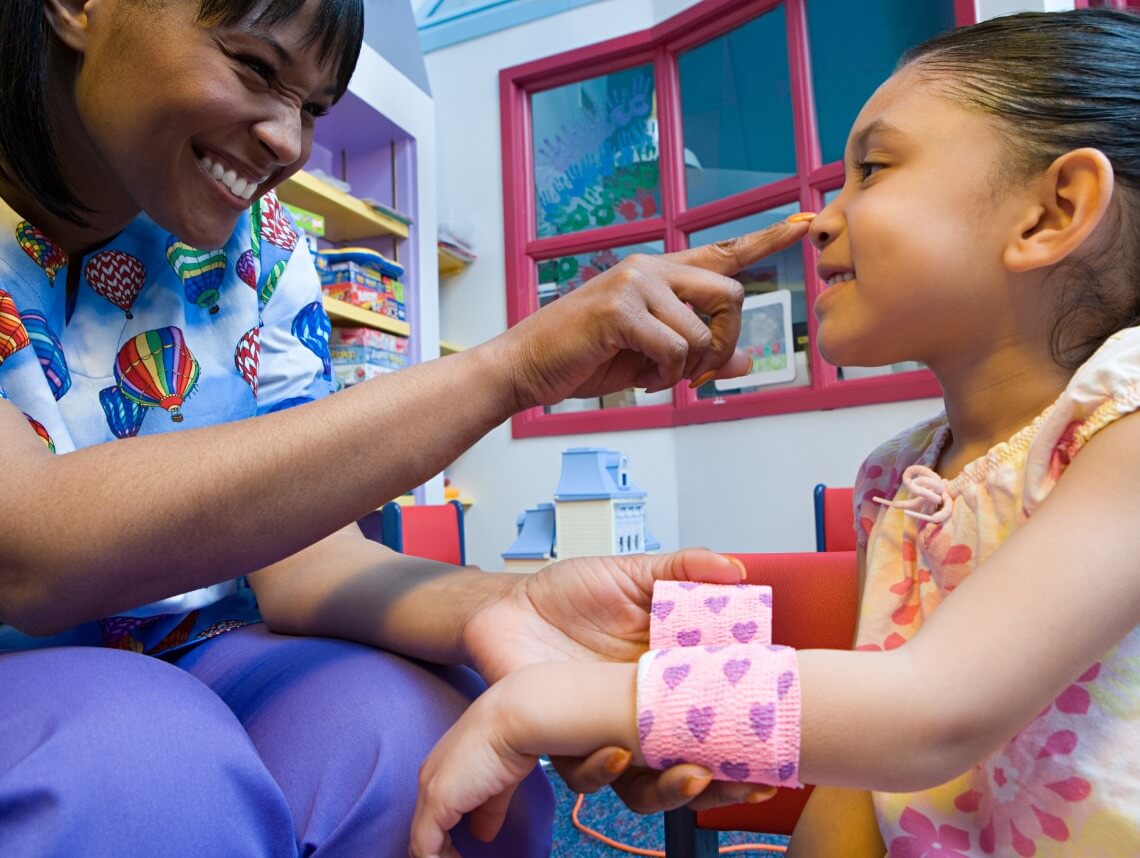Your child is your everything. The reason you work longer hours — or the reason you stay at home more often. The reason you look for ways to improve your home life, plan fun games, and make time for bedtime stories. So if they’re diagnosed with an illness, you can feel like your world is falling apart. Such can be the case with sickle cell anemia — a rare but painful condition that can significantly impact your child’s quality of life. If your baby has been diagnosed with sickle cell anemia, you may be wondering how to best care for them. Are there any home care tips? And, when is it a good time to enlist help for home health care?
What is Sickle Cell Anemia?
Sickle cell anemia is an inherited blood condition that affects the shape and texture of red blood cells. As a result, the child may experience blockages of blood and oxygen flow through their body — resulting in intense pain episodes. Every baby born in the United States is screened for the condition, and treatment can begin as early as infancy.
5 Tips for Caring for Children with Sickle Cell Anemia
Sickle cell anemia may require a cocktail of prescription medications, injections, regular blood transfusions, and/or stem-cell transplants. That said, there are several things you can do at home to make your child more comfortable and reduce the risk of pain crises. These include:
1. Take steps to prevent infections.
Having a short supply of healthy blood cells places your child at a greater risk of contracting infections. Therefore, make sure everyone in your household washes their hands frequently. Prioritize immunization shots, and avoid feeding your child undercooked meals.
2. Learn about pain management.
While the more extreme pain crises require hospital stays, your child may also experience chronic pain that can be treated at home. Talk to the pediatrician regarding the best options for your baby — massages, taking a warm bath, applying heating pads, or over-the-counter medications. If family members are going to help you care for your child, make sure they are aware of what helps alleviate the pain.
3. Monitor the temperature.
Extreme temperature changes will increase the risk of a pain crisis. This is especially important to be aware of during Florida summers. If you’re spending time outside, make sure to have items to cool down your child throughout the day — such as iced water, handheld fans, and staying close to air-conditioned areas. If it may get chilly, always bring extra layers of clothes.
4. Seek medical attention if your child has a fever.
Healthy children may get away with simply taking an over-the-counter fever reducer. But a child with sickle cell anemia is prone to infections — and a fever could be an indication that they have contracted one. In fact, fevers are usually the first sign of a bacterial infection — to be followed by lethargy, shortness of breath, and/or vomiting.
5. Be mindful of nutrition.
Children with sickle cell anemia often have low calcium levels and vitamin D deficiency. Therefore, look for foods that contain calcium — such as kale, tofu, broccoli, almonds, eggs, nut butters, and cheese — as well as vitamin D for better calcium absorption. This includes salmon, mushrooms, soy milk, fortified breads, and cereals. Make it a point to have the entire family participate in this nutrition plan so that your child doesn’t feel left out.
When to Start Home Care for Sickle Cell Anemia
Depending on whether the condition is mild or severe, your child may experience frequent pain crises. This means frequent hospital stays — taking you away from your other children (if you have any), work duties, and other responsibilities. All of this is completely understandable, but sometimes, it can get to be too much. If you’re becoming stressed, overwhelmed, or isolated, a home health caregiver can help provide assistance or respite.
Contact Care Options for Kids for Home Health Care in Florida
It can be hard to balance your time between work, home, and caring for a child who has sickle cell anemia. You can feel helpless and want to spend every minute of your day with your child, and home health care providers offer the support you or your loved one needs.
If you are considering pediatric home health care services in Florida, contact the caring staff at Care Options for Kids. Call today at (888) 592-5855.






